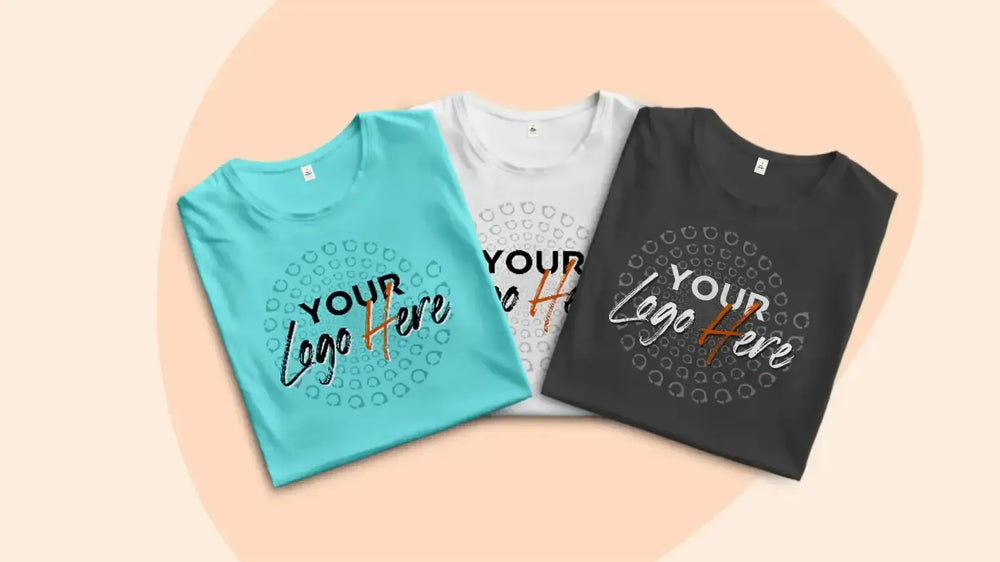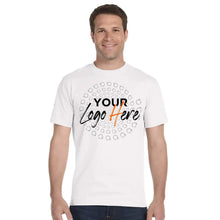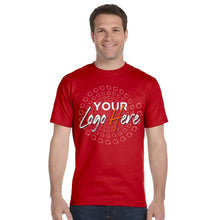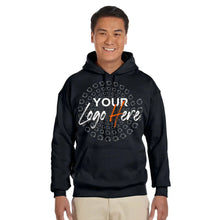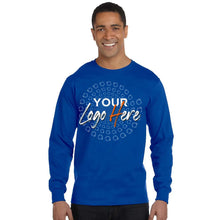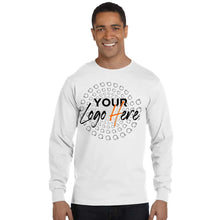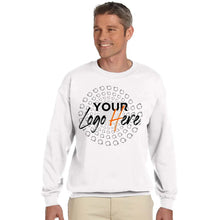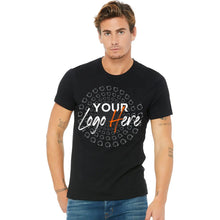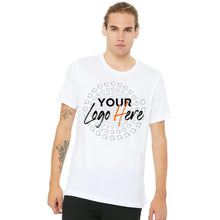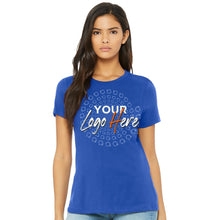How to Start Your Own Custom T-Shirt Business With Wholesale Apparel

Starting a custom t-shirt business is an exciting venture with great profit potential. The demand for personalized apparel continues to grow, fueled by businesses, sports teams, schools, and individuals seeking unique and creative designs. Whether you're looking to sell branded merchandise, trendy streetwear, or event-specific apparel, launching a t-shirt business with wholesale apparel provides a cost-effective way to enter the market.
By leveraging wholesale suppliers, entrepreneurs can keep production costs low while maintaining a high profit margin. The right approach, strategic planning, and marketing efforts can transform a small venture into a thriving business. This guide will walk you through the step-by-step process of starting a custom t-shirt business using wholesale apparel, ensuring long-term success in the competitive fashion industry.
Planning Your T-Shirt Business
Determining Your Niche and Target Market
Before launching your business, it is essential to define your niche. Identifying a specific target market helps in branding, marketing, and product development. Consider the following popular niches:
-
Streetwear and urban fashion – Trendy designs for young audiences
-
Corporate and promotional apparel – Custom t-shirts for businesses and events
-
Sports and fitness wear – Athletic apparel and team uniforms
-
Band and event merchandise – Concerts, festivals, and brand collaborations
-
Personalized gifts and novelty shirts – Fun and unique custom designs
Setting Clear Business Objectives and Goals
Establishing goals helps you track progress and maintain a clear direction. Define measurable objectives such as revenue targets, customer acquisition strategies, and expansion plans. Some common business goals include:
-
Selling a specific number of t-shirts per month
-
Expanding to multiple sales channels
-
Establishing a strong online presence
Importance of a Detailed Business Plan
A well-crafted business plan serves as a roadmap to success. It should cover:
-
Business model and pricing strategy
-
Market research and competitive analysis
-
Budget and financial projections
-
Production and fulfillment strategy
-
Marketing and sales plan
Legal and Financial Foundations
Selecting a Business Structure
Choosing the right legal structure is crucial for tax and liability purposes. Common options include:
-
Sole Proprietorship – Simple setup but personal liability
-
Limited Liability Company (LLC) – Protects personal assets and offers tax advantages
-
Corporation (C-Corp or S-Corp) – Suitable for scaling and attracting investors
Registering Your Business and Brand Name
Check the availability of your business name and register it with the appropriate state or federal authorities. Trademarking your brand protects against unauthorized use.
Understanding Tax Requirements and Obtaining an EIN
To comply with tax regulations, apply for an Employer Identification Number (EIN) from the IRS. This number is required for tax reporting, opening business bank accounts, and hiring employees.
Setting Up a Business Bank Account
Keeping business finances separate from personal accounts helps in managing transactions, tracking expenses, and simplifying tax filing.
Sourcing Your Wholesale Apparel
Criteria for Selecting the Right Wholesale Supplier
Partnering with the right supplier ensures quality and cost-effectiveness. Key factors to consider include:
-
Product variety and availability
-
Fabric quality and durability
-
Pricing and bulk discounts
-
Shipping options and turnaround time
Benefits of Partnering With Reputable Wholesale Apparel Providers
Wholesale suppliers allow businesses to scale efficiently. Reliable suppliers offer:
-
Consistent stock availability – Prevents order delays
-
Competitive pricing – Maximizes profit margins
-
Customization options – Enables brand differentiation
Negotiating Terms and Pricing With Suppliers
Building strong relationships with suppliers can lead to better pricing and exclusive deals. Negotiate bulk discounts, flexible payment terms, and return policies to optimize business costs.
Designing Your T-Shirts
Importance of Unique and Appealing Designs
Design plays a crucial role in attracting customers. High-quality graphics, trendy fonts, and eye-catching color schemes enhance appeal and increase sales.
Options for T-Shirt Design: DIY vs. Hiring a Designer
Entrepreneurs can design shirts using graphic software like Adobe Illustrator and Canva, or hire professional designers via freelance platforms such as Upwork or Fiverr.
Utilizing Design Software and Platforms
Use design platforms that support high-resolution printing. Popular options include:
-
Adobe Photoshop – Ideal for detailed graphics
-
CorelDRAW – Great for vector-based designs
-
Canva – User-friendly and cost-effective
Choosing Printing Techniques
Overview of Different Printing Methods
Selecting the right printing method impacts quality and production costs. The most common methods include:
-
Screen Printing – Best for bulk orders with durable prints
-
Direct to Garment (DTG) – Ideal for intricate, full-color designs
-
Heat Transfer – Great for small batches and custom designs
-
Vinyl Printing – Suitable for personalized names and numbers
Pros and Cons of Each Printing Technique
-
Screen Printing: High-quality, cost-effective for bulk, but limited color options
-
DTG Printing: High detail, but slower and costlier per unit
-
Heat Transfer: Versatile, but less durable than other methods
-
Vinyl Printing: Durable and flexible, but not ideal for large orders
Setting Up Your Online Presence
Creating a Professional Website
A well-designed website increases credibility and sales. Include essential pages like product listings, pricing, FAQs, and customer testimonials.
Optimizing Your Website for E-Commerce
Implement SEO best practices by using:
-
Keyword-rich product descriptions
-
High-quality images and mockups
-
Fast-loading pages and mobile-friendly design
Choosing the Right E-Commerce Platform
Platforms like Shopify, WooCommerce, and BigCommerce offer powerful tools to manage sales, inventory, and marketing.
Marketing and Promotions
Developing a Marketing Strategy
A strong marketing plan enhances brand awareness. Effective strategies include:
-
Social media advertising
-
Influencer collaborations
-
Email marketing campaigns
Leveraging Social Media
Promote products on platforms like Instagram, Facebook, and TikTok to engage with a wider audience.
Email Marketing and Content Marketing Tactics
-
Build an email list with promotions and exclusive offers
-
Create engaging blog content around t-shirt trends and styling tips
Sales Channels and Distribution
Exploring Different Sales Channels
Expand reach through:
-
Online marketplaces (Etsy, Amazon)
-
Retail partnerships and pop-up shops
-
Local events and trade fairs
Fulfillment and Shipping Logistics
Partner with fulfillment centers to ensure timely deliveries. Same-day shipping options increase customer satisfaction.
Customer Service Best Practices
Offer exceptional support by implementing:
-
Easy returns and exchanges
-
Responsive customer service
-
Loyalty programs
Scaling Your Business
Techniques for Scaling Production
As demand grows, consider:
-
Automating inventory management
-
Partnering with additional suppliers
-
Expanding warehouse and fulfillment centers
Expanding Product Lines
Introduce related apparel like hoodies, tank tops, and accessories to cater to a broader audience.
Strategic Partnerships and Collaborations
Collaborate with brands, influencers, and artists to expand reach and credibility.
Launching a custom t-shirt business with wholesale apparel is a profitable venture with limitless possibilities. With proper planning, quality sourcing, and strategic marketing, entrepreneurs can establish a successful brand. Custom One Online provides high-quality apparel customization services, ensuring seamless production and professional results.
FAQs
What is the average startup cost for a custom t-shirt business?
Startup costs range from $500 to $10,000, depending on printing methods and inventory.
How do I protect my t-shirt designs from being copied?
Trademarking unique designs and using copyright protection ensures exclusivity.
Can I start a t-shirt business at home?
Yes, a home-based operation is feasible with the right equipment and online store setup. Custom One Online supports entrepreneurs with wholesale blanks and printing services.
What permits or licenses do I need for a t-shirt business?
Check local regulations for business licenses, seller permits, and trademark registrations.
How can I ensure consistent print quality?
Work with reliable suppliers and test different printing methods before bulk production.
